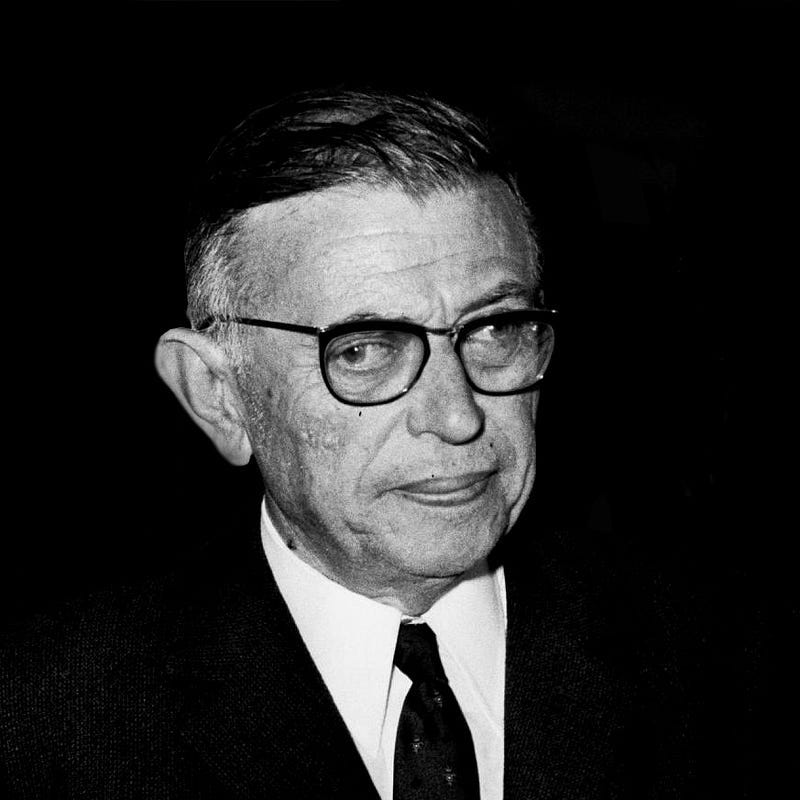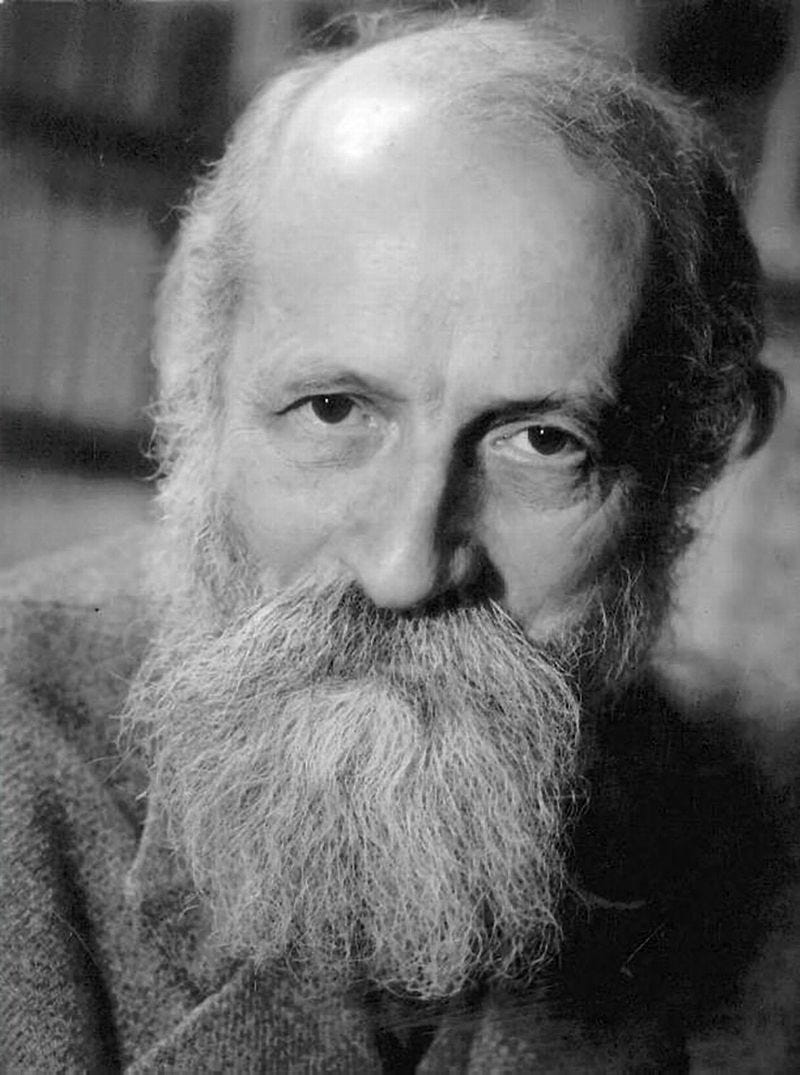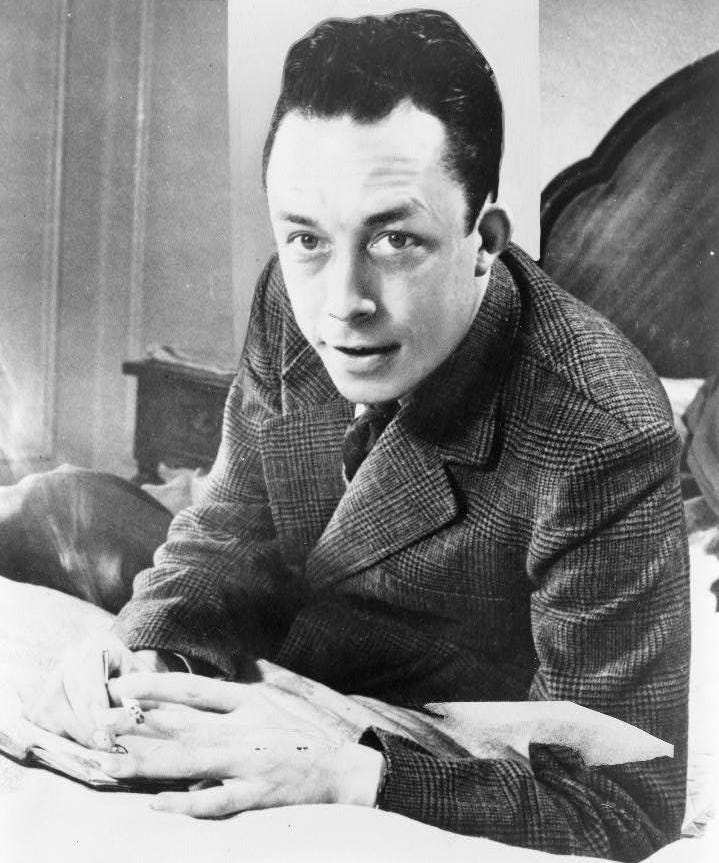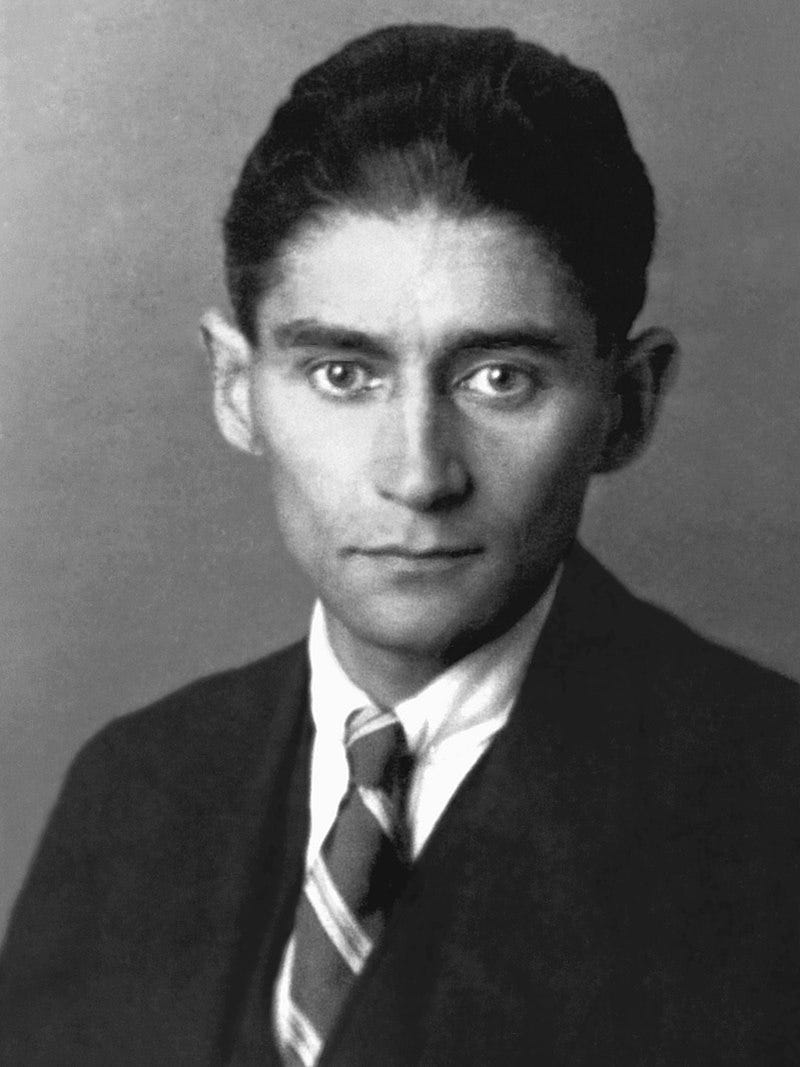Finding Meaning in an Uncertain World: Existentialism
Discover the power of individual freedom and responsibility with existentialism. Find your own sense of purpose and meaning.
The Burden of Responsibility
“Existence precedes essence.” This famous quote by Jean-Paul Sartre, one of the key figures in the history of existentialism, captures the essence of this philosophical movement.
Existentialism emphasizes the individual’s freedom, choice, and responsibility in determining their own path in life and holds that our existence precedes any predetermined essence or purpose that may be imposed upon us by society or other external forces.
But what does it mean to truly be free and responsible for our own lives?
Existentialists argue that this freedom comes with a heavy burden, as we must constantly make choices about how to live our lives and find meaning in an often-unmeaningful world. We are faced with infinite possibilities and must choose which path to take, even in the face of uncertainty or the unknown.
This freedom and responsibility are inextricably linked to our very existence. As Sartre wrote, “We are not given a nature; we are given existence, and with it the possibility of creating ourselves as something or someone.” Existentialists believe that we are not defined by any predetermined essence or nature but rather by our choices and actions.
But how do we go about finding meaning and purpose in a world that often seems arbitrary or meaningless? This question has plagued philosophers and thinkers for centuries, one that existentialists have grappled with in their quest to understand the human condition.
Do you feel like you have the freedom and responsibility to shape your own life and create your own sense of meaning and purpose? How do you go about finding meaning in a seemingly meaningless world?
Existentialism encourages individuals to take an active role in shaping their own lives and to make choices that are authentic and true to themselves. This can be challenging, as we are often faced with external pressures and expectations that can make it difficult to remain true to ourselves.
One way individuals can begin exploring their own sense of freedom and responsibility is through self-reflection and introspection. This can involve examining one’s own values, beliefs, and motivations, as well as considering the impact of one’s choices and actions on others and the world around us.
Another key aspect of existentialism is the recognition of our own mortality and the finitude of our existence. This can be a difficult reality to confront, but it can also serve as a reminder of the preciousness of life and the importance of making the most of the time we have.
Existentialism can be a challenging and thought-provoking philosophy. Still, it also offers a unique perspective on the human condition that can help us better understand ourselves and our place in the world. Whether we are struggling to find meaning and purpose in our lives or simply seeking to live more authentically and freely, the ideas of existentialism can provide us with valuable insights and inspiration.
Existentialism is a philosophical movement that emphasizes the individual’s freedom, choice, and responsibility in determining their own path in life. It originated in the 19th and 20th centuries and significantly influenced modern philosophy, literature, and popular culture.
One of the key figures in the history of existentialism is Jean-Paul Sartre, a French philosopher who is perhaps the most well-known existentialist. Sartre believed that individuals are fundamentally free and responsible for their own actions and that this freedom and responsibility are inextricably linked to the concept of existence.
According to Sartre, human beings are “condemned to be free” and must choose how to live their lives, even in the face of seemingly insurmountable obstacles or uncertainties. Sartre’s concept of “bad faith” refers to the idea that individuals can deceive themselves or others about the true nature of their choices, leading to a sense of inauthenticity or meaninglessness.
Sartre argued that individuals are responsible for living authentic lives and being true to themselves, even in the face of societal pressures or expectations.
Other important figures in the history of existentialism include Friedrich Nietzsche, Martin Heidegger, and Martin Buber.
Nietzsche, a German philosopher, argued that human beings must create their own values and meaning in life rather than relying on traditional religious or moral systems. He believed that the concept of God was a human invention and that individuals must take responsibility for creating their own sense of purpose and meaning.
Nietzsche’s concept of the “Ubermensch,” or “superman,” refers to the idea that individuals must transcend their limitations and create their own values in order to live a fulfilling life.
Heidegger, a German philosopher and theologian explored the nature of human existence and the role of technology in shaping our understanding of the world. He argued that the modern world had become too focused on technical efficiency and had lost touch with a deeper sense of meaning and purpose.
Heidegger’s concept of “Dasein,” or “being-there,” refers to the idea that human beings are fundamentally relational beings and that our relationships with others shape our understanding of the world.
Buber, an Austrian philosopher and theologian focused on the concept of dialogue and the importance of relationships in shaping our sense of self and our understanding of the world. He argued that authentic relationships with others were essential to finding meaning in life.
Buber’s concept of “I-Thou” relationships refers to the idea that true communication and understanding can only occur when individuals are fully present and engaged with one another.
Existentialism has significantly impacted literature, with many writers and poets exploring themes of freedom, choice, and responsibility in their work. Some notable examples include the novels of Albert Camus, such as “The Stranger” and “The Plague,” which explore the concept of the “absurd” and the individual’s search for meaning in a seemingly meaningless world.
Camus’s concept of the “absurd” refers to the tension between the human desire for meaning and purpose and the inherent meaninglessness of the universe.
The works of Franz Kafka, such as “The Metamorphosis” and “The Trial,” also explore themes of individual freedom and responsibility in the face of oppressive systems and circumstances. Kafka’s works often focus on the theme of the individual’s struggle against an oppressive and irrational society.
Furthermore, the plays of Sartre and Samuel Beckett, such as “No Exit” and “Waiting for Godot,” also explore the choices and consequences of human action. These plays often focus on the theme of human isolation and the search for meaning in a meaningless world.
Existentialist themes can also be found in popular culture, with many films and television shows exploring the choices and consequences of human action.
For example, the film “The Shawshank Redemption” examines the theme of individual freedom and responsibility in the context of a corrupt prison system. The main character, Andy Dufresne, must navigate a system designed to strip individuals of their autonomy and agency and find a way to maintain his sense of self and purpose in the face of overwhelming adversity.
The television show “The Good Place” explores the concept of moral responsibility and the search for meaning in an afterlife. The characters in the show must confront their past actions and the consequences of their choices and must decide how to live their lives in the face of an uncertain future.
Today, existentialism is still a relevant and influential philosophical movement. Many people are interested in existentialism because it offers a different perspective on the human condition, emphasizing individual freedom and responsibility rather than determinism or conformity to societal norms.
Existentialism encourages individuals to take an active role in shaping their own lives and to make choices that are authentic and true to themselves. As the world continues to change and evolve, the ideas of existentialism will likely continue to be relevant and influential in shaping our understanding of ourselves and our place in the world.
The ideas of existentialism can be unsettling, as they challenge us to confront the fundamental questions of our own existence and the choices we make. Existentialism reminds us that we are free and responsible for our own lives and that we must find our own meaning and purpose in a world that is often uncertain and unpredictable.
This can be a daunting task but it is also an essential aspect of the human experience. As Friedrich Nietzsche wrote, “He who has a why to live for can bear almost any how.” Finding meaning and purpose in life can give us the strength and resilience to endure even the most difficult challenges.
But how do we go about finding this meaning and purpose?
Existentialists offer a range of perspectives on this question, from Nietzsche’s emphasis on the individual’s ability to create their own values to Buber’s focus on authentic relationships with others. Ultimately, the answer will differ for each individual, depending on our values, beliefs, and experiences.
Despite the challenges and uncertainties of the human condition, existentialism also offers a sense of hope and possibility. As Jean-Paul Sartre wrote, “Man is nothing else but that which he makes of himself.” We have the power to shape our own lives and create our own sense of meaning and purpose. By embracing our freedom and responsibility, we can find our own way in the world and make a positive difference in the lives of others.
So don’t be afraid to confront the fundamental questions of your own existence. The journey may not be easy, but it is ultimately worth taking.
Feeling overwhelmed or uncertain when faced with life’s big questions is natural, but it is also an opportunity to grow and learn. Existentialism encourages us to embrace our own unique path and to live a life that is true to ourselves rather than conforming to the expectations of others.
While trying to avoid or escape from these questions may be tempting, it is ultimately more fulfilling and rewarding to face them head-on. By actively seeking out meaning and purpose in our lives, we can find a sense of direction and fulfillment that is essential to our well-being and happiness.
Also, don’t be afraid to explore your own sense of freedom and responsibility. Embrace your freedom and responsibility, and use them to create a life that is authentic, meaningful, and fulfilling. Take some time to reflect on your own values, beliefs, and goals, and consider how you can use them to shape your life in a meaningful and authentic way. The voyage may not always be comfortable, but it is an essential part of the human experience and one that can ultimately bring great joy and fulfillment.
To close, here is a hopeful quote from Jean-Paul Sartre:
“I am responsible for everything, in fact, except for my very responsibility, for I am not the foundation of my being. Therefore everything takes place as if I were compelled to be responsible.”
Sartre’s words remind us that we are fundamentally free and responsible for our own lives but that this freedom and responsibility are not something we can fully control or understand. “We are abandoned in the world,” but this does not mean that we are alone or without help. Rather, it means that we are allowed to create our own sense of meaning and purpose in a world that is full of possibility and potential.
So embrace your freedom and responsibility, and use them to create an authentic and meaningful life. Don’t be afraid to face the big questions of existence, and remember that you are not alone in your search for meaning and purpose. There is always hope and potential for growth and fulfillment, no matter how difficult or uncertain the journey may seem.








